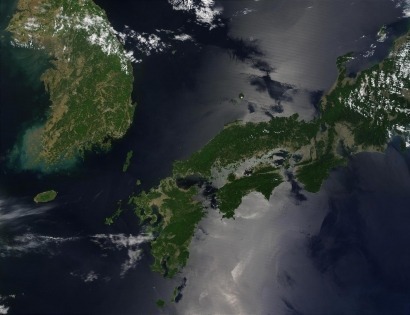
One way to address concerns over Japan’s aging nuclear power plants is to simply shut them all down. With 37 of Japan’s 54 nuclear reactors already out of operation due to scheduled maintenance or earthquake damage, pulling the plug on the remaining 17 reactors should not be that difficult. But this solution comes with risks that have not yet been fully explored.
Japan’s former Prime Minister Naoto Kan recently announced a plan to reduce the country’s dependence on nuclear power plants, eventually eliminating all nuclear power production. According to Kan, “Given the enormity of the risks associated with nuclear power generation, I have realized that nuclear technology is not something that can be managed by conventional safety measures alone . . . I believe we should aim for a society that is not dependent on nuclear power generation (translation).”
Before the Great East Japan Earthquake and subsequent Fukushima Daiichi nuclear plant incident, nuclear energy accounted for about 30 percent of Japan’s electric power supply. Now, the percentage is closer to 18 percent, and the number of operating nuclear plants could drop further as reactors are shut down for scheduled maintenance.
STATUS OF JAPAN’S 54 NUCLEAR REACTORS
No one is taking for granted that the reactors undergoing maintenance or earthquake repairs will be started up anytime soon. Indeed, many Japanese are calling for the reactors to be permanently shut down. The consequence of this would be that 30 percent of Japan’s electric power production would have to be replaced – quickly!
What would the options be for replacing Japan’s lost electric power generating capacity? The ultimate solution, renewable energy, would require 10 to 20 years to make a significant dent in Japan’s energy shortfall. In the interim, that leaves coal and oil, both imported into this resource-scarce nation.
The immediate risk of increased dependence on coal and oil would be added air pollution and greater emissions of greenhouse gases. This would make it almost impossible for Japan to meet its 2020 target of reducing greenhouse gas emissions by 25 percent from 1990 levels. And it would also leave Japan’s most critical industries dependent upon other fossil fuel exporting countries for their essential energy needs.
Another risk would be higher industrial production costs due to the price tag for imported fossil fuels and the infrastructure investment needed to expand Japan’s coal and oil generating capacity. This could increase commodity prices and potentially drag down the GDP.
The trade-offs between nuclear and fossil fuels are being debated worldwide as nations grapple with climate change policy amid growing concerns over nuclear power. Until renewable energy comes of age in a big way, energy conservation and investment in energy-efficient technologies may be the best alternatives.
[Photo inset: Clear skies over Japan and Korea. Will they last? Courtesy of NASA.]

